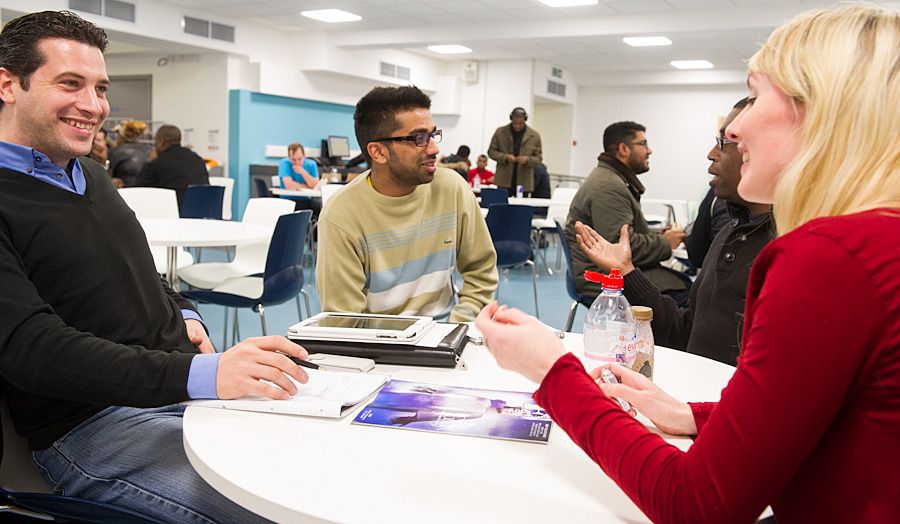London Met’s Peer Assisted Student Success (PASS) scheme benefits all involved.
Date: 9 March 2016
Over 3,000 London Met students have benefited from a scheme aimed at boosting academic success.
The Peer Assisted Student Success (PASS) scheme was launched in 2014 and sees second and third year students coach first years.
The scheme was introduced to help first year students achieve success in their studies and feel more integrated as members of their courses and University community.
Second and third years are trained as ‘Success Coaches’ to provide guidance to first year students to help them develop a better understanding of course content and what is required in assessments, good academic skills, and effective ways to be successful students. It also helps them to adapt to university life.
Success Coaches are paid the London Living Wage for their time, but also develop confidence and leadership skills through their role as mentors. They draw on their own knowledge and experience of the course to help other students develop the skills it takes to achieve success.
The PASS scheme is part of London Met’s Programme for Improved Student Outcomes (PISO) – a range of projects aimed at boosting student success both during and after their time at London Met.
One student who took part in the scheme as a Success Coach, Amna, said: “It was a great initiative in order to allow first years to settle in more comfortably and become more confident in their environment.”
Another Success Coach, Violeta, said: “I was excited by the opportunity of the training as I thought I would be able to learn so many new things and develop my social skills and my communication skills. I thought this would be a beneficial process for both myself and the first year students as well.”
Nearly 3,000 students have taken part in the PASS scheme so far, with over 150 being trained as Success Coaches.
The PASS scheme is enshrined in London Met’s Strategic Plan as one of the University’s five star student promises, and reflects the extra support students receive alongside their core academic studies.

